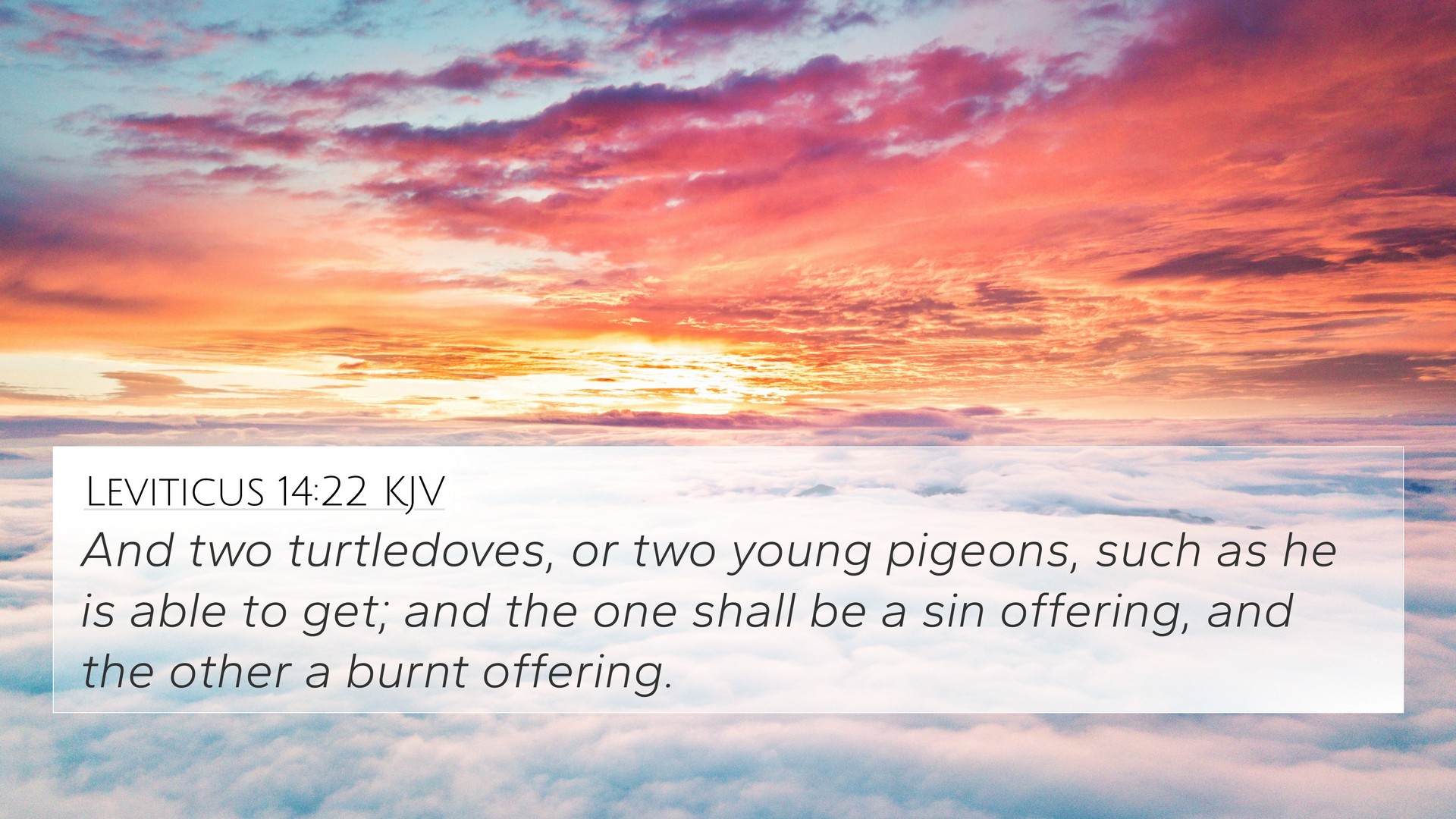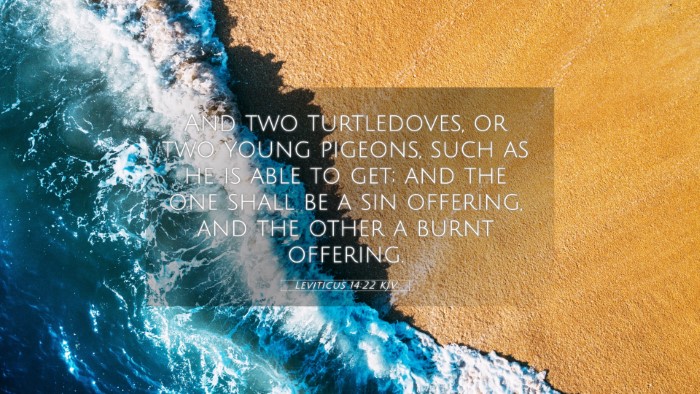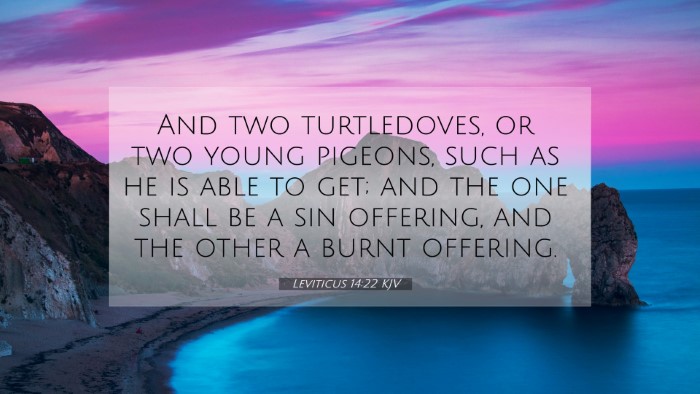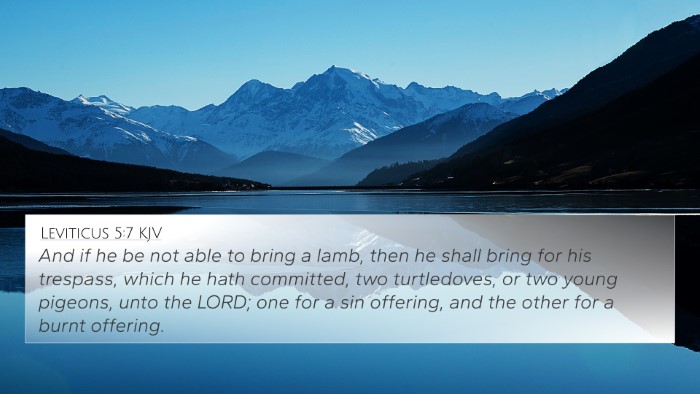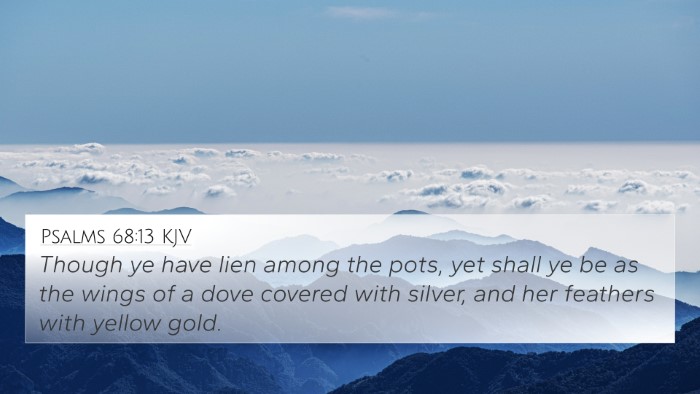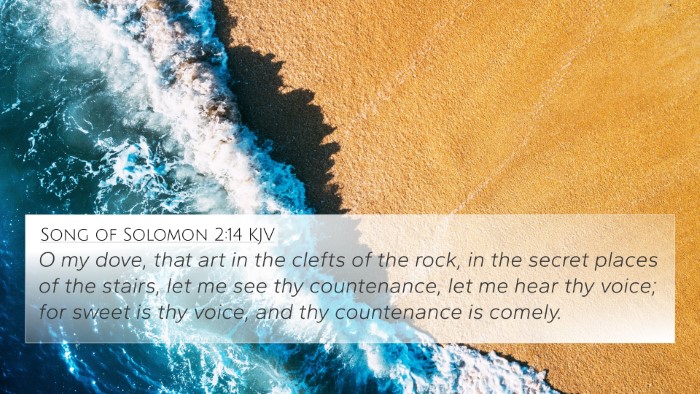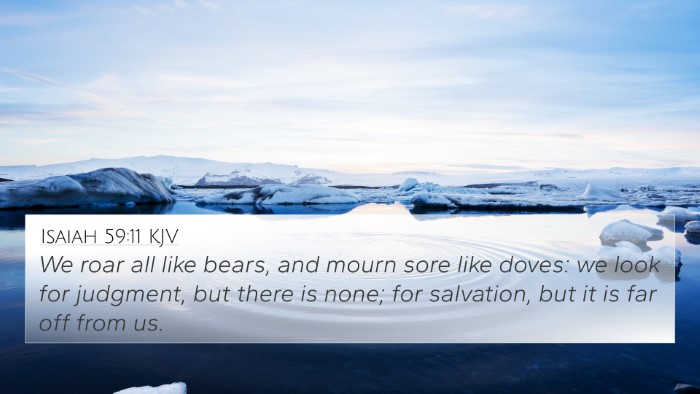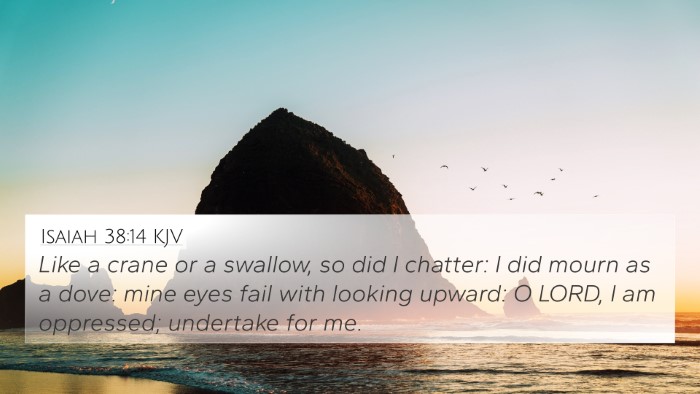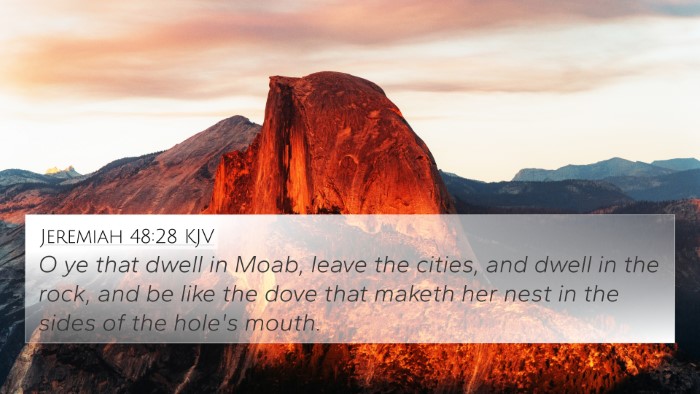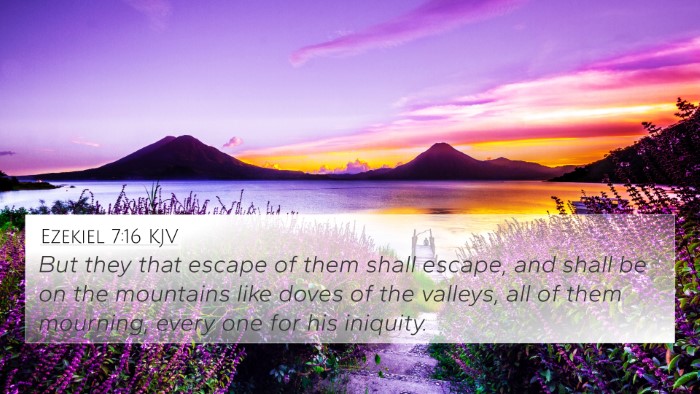Understanding Leviticus 14:22
Leviticus 14:22 states, "And of the poor, he shall offer two turtle doves, or two young pigeons, such as he is able to get; and the one shall be a sin offering, and the other a burnt offering." This verse is part of a larger context regarding the ritual for cleansing a leper after their ailment is healed.
Context and Significance
This verse highlights the provision for those who cannot afford the more expensive offerings, reflecting God's compassion and desire for inclusivity in worship. The offerings represent atonement and dedication to God.
Key Insights from Commentaries
-
Matthew Henry:
Henry emphasizes the equality of all before God, noting that even the poorest may secure atonement and acceptance through humble offerings. The two birds symbolize the dual needs of atonement (sin offering) and gratitude (burnt offering).
-
Albert Barnes:
Barnes illustrates the importance of the sin and burnt offerings. He points out that the sin offering signifies the need for forgiveness, while the burnt offering represents the worshiper's total surrender and commitment to God, demonstrating a holistic approach to sacrificial worship.
-
Adam Clarke:
Clarke stresses the importance of the offerings being according to one’s means. His analysis reminds us that the focus is not on the cost of the offering but on the heart of the giver, making this passage relevant for all believers regardless of their financial situation.
Bible Verse Cross-References
- Exodus 12:5: Instructions concerning the Passover lamb – emphasizing the importance of sacrifices.
- Leviticus 1:14: Instruction for a burnt offering – connects to the concept of complete dedication to God.
- Leviticus 5:7: Provision for those who cannot afford more expensive offerings – reiterating God's mercy.
- Luke 2:24: Mary's offering at Jesus' presentation in the temple – highlights the fulfillment of the law regarding offerings.
- Matthew 5:23-24: Jesus teaches about reconciliation and offering – emphasizing the importance of relationships and worship.
- Hebrews 9:22: The necessity of blood for the forgiveness of sins – linking to the significance of the sin offering.
- James 2:5: God's choice of the poor to inherit the kingdom – aligns with the theme of God's equity toward all people.
Thematic Connections
Leviticus 14:22 speaks volumes about the themes of mercy, sacrifice, and accessibility in worship. It reflects God's heart towards the marginalized and sets a precedent for the inclusivity found in the New Testament.
- Mercy: God's provision for the poor.
- Sacrifice: The need for atonement and complete surrender to God.
- Inclusivity: God's welcoming of all, regardless of socio-economic status.
Connecting the Testaments
There are profound connections between this Old Testament verse and New Testament teachings, particularly regarding the grace offered through Christ. The offerings in Leviticus point to the ultimate sacrifice made by Jesus, allowing both rich and poor to approach God freely.
Tools for Bible Cross-Referencing
Utilizing tools for Bible cross-referencing can enhance one’s study of Scripture. Here are some aspects to consider:
- Use a Bible concordance to locate keywords.
- A cross-reference Bible study guide aids in finding related verses.
- Employ a comprehensive Bible cross-reference system for deeper insights.
Conclusion
Leviticus 14:22 serves as a salient reminder of God's love, accessibility, and the importance of sincere worship. It highlights how disparate verses across the Bible interconnect, reflecting the unified message of redemption and grace.
